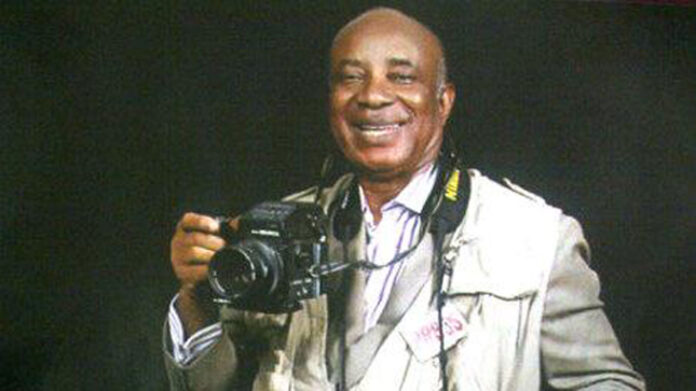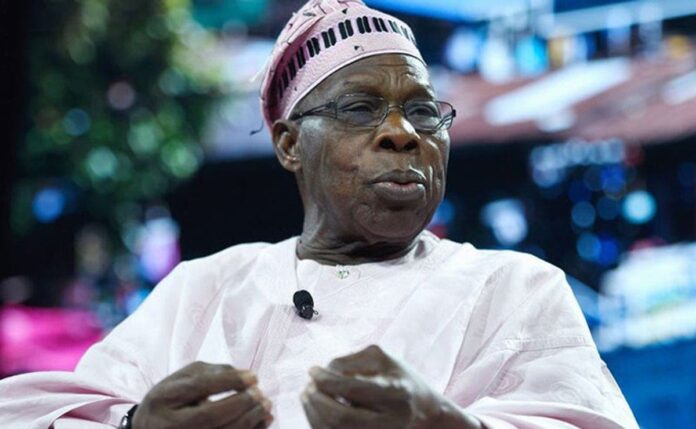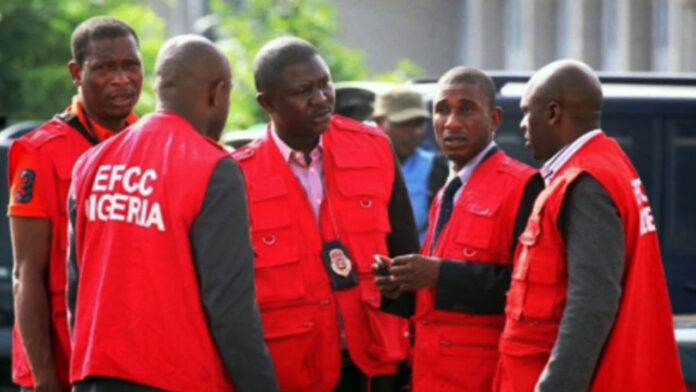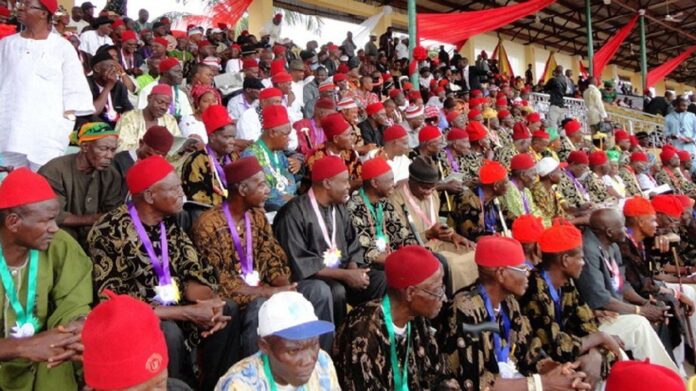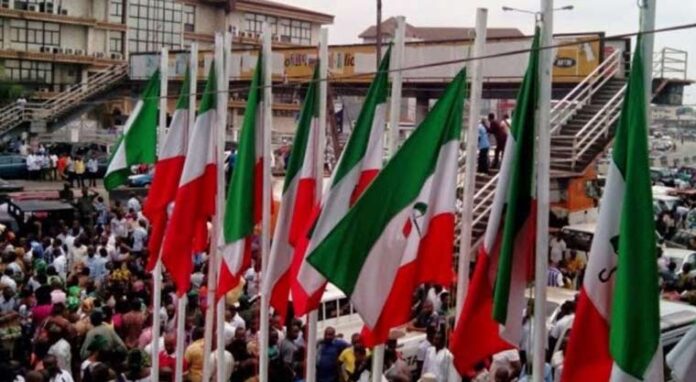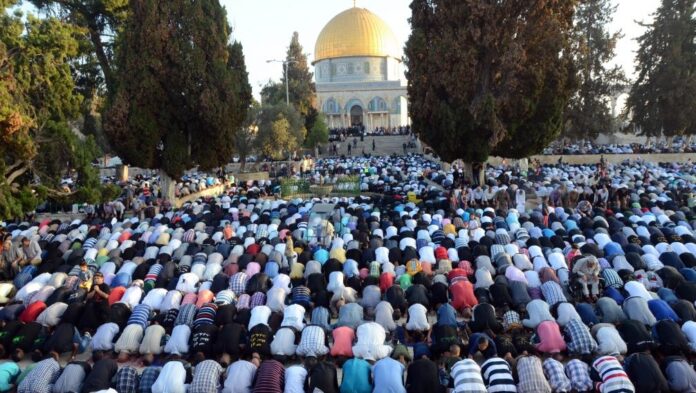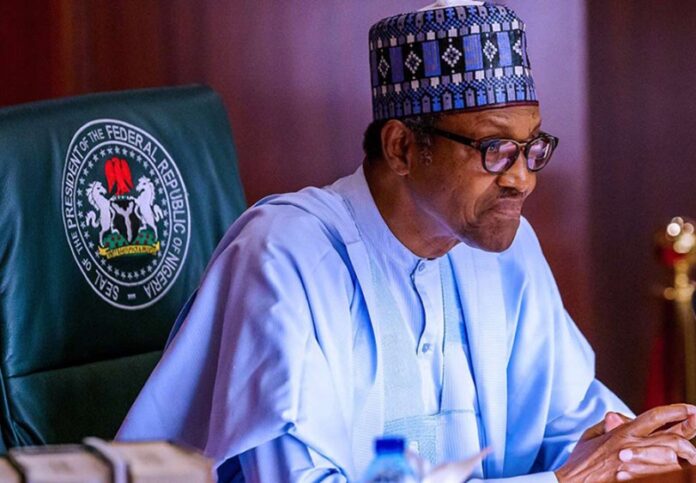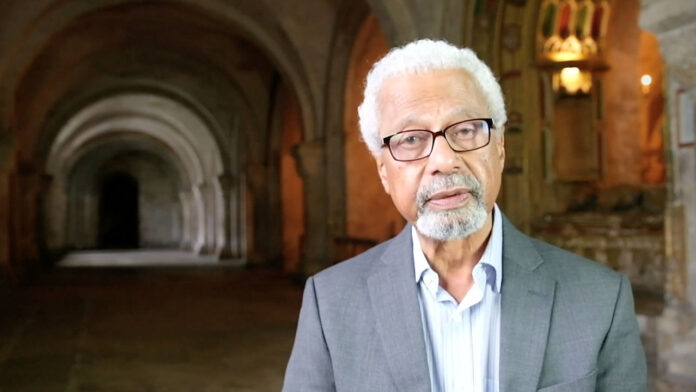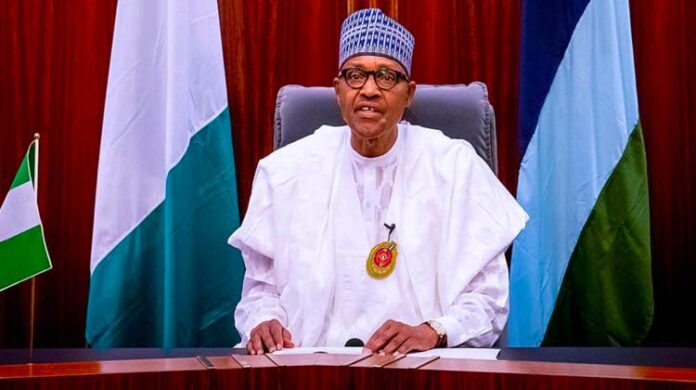Sunmi Smart-Cole is one of Nigeria’s most respected personalities in the photography, hair styling, musical, architectural and horticultural professions. The award-winning photographer, jazz percussionist and one-time trend setting barber turned 80 on Saturday, September 25, this year. In this interview with DANIEL ANAZIA, he reminisces on his life as a photographer, musician, architect and a Nigerian who witnessed the country’s independence on October 1, 1960.
Congratulations on your 80th birthday. What are your reflections about life, and how have you been taking care of yourself?
Do I look 80? Anyway, I’m grateful to God that I’m 80. What more do I say to God? Some of my mates died at 16, some at 20 and some others at 60. But here I am at 80.
To answer your question, I allow myself to be like you, the ordinary man. Someone looked at me on that day and said, ‘you don’t look 80; there is no wrinkle and all of that’. She asked me, what do you eat? For me, I think it has to do with self-discipline in terms of what I eat. I don’t drink; I only had an alcoholic drink when I was 12 years old. I don’t smoke anything, whether cigarette or hemp; I don’t take anything that has sugar. Also, I don’t eat red meat. I have not had red meat in the last 55 years. So, I tried to prevent many things like that.
You are known to be a very meticulous and principled person in terms of maintaining standards on how things should be or should be done. How have you been able to keep this principle?
I’m a firm believer in the old saying that states: “Whatever that is worth doing should be done well.” At a point in my life, two ministers approached me to serve as their conduit. One is from the South and the other from the North. The one from the North approached me three days before his official appointment. I followed him to the office when he was to take over. What that simply means is that they wanted me to help them hide whatever money they steal from office.
It’s an opportunity some people would have jumped at. Why didn’t you?
So, I should have pleased them? I’m not that kind of person. When we finished at the office, I looked at the man from the North, shook my head and told him that I felt sorry for Nigeria. You have not started work you are already looking for a way of stealing money, and you want somebody like me to help you hide it?
A lot of people don’t know where I live. Many people were surprised when they came here last Saturday, which was my birthday. I’m happy that I got this house. They were surprised I live in my own house in a nice neigbhourhood. I generated all the plants you see here. I’m a founding member of the Lagos Horticulture Society.
So, I feel sorry for Nigeria because when the country attained independence on October 1, 1960, things were not the way they are today. Look at Nigeria today, at 61, everything is not okay; the country is practically non-existent. Like Chinua Achebe rightly captioned it in one of his writings, There Was a Country. At independence, Nigerians were one and we were singing one Nigeria. Some days to the Independence Day, I had chicken pox and was admitted in the hospital. Three days before the celebration, I begged the doctor to let me go home because everywhere was frenzy, everybody was excited and I wanted to be part of the celebration.
Let me tell you, the 1966 coup did a lot of damage to this country. If Nigeria had remained the way it was before the coup, we would have been very much better and greater. The coup and the coup plotters, as I said, did a lot of damage, and it is the ripple effect that we are still witnessing today.
After independence, there were a few commissioned army officers and they were from the South. The coup plotters were from the southern part of the country. At that time, not many Hausa people were educated in the western sense, apart from the Sarduana, who was the grandson of Uthman Dan Fodio, their leader. Major Chukwuma Kaduna Nzeogwu killed him. In retaliation, soldiers from the North came together and wiped out the Igbo in their region. This sparked the civil war. General Yakubu Gowon knew how to play the politics. And what did he do? He granted Chief Obafemi Awolowo who was then in prison freedom and made him finance minister. No one knew him (Gowon) at the time, as he was a very young officer. He was not popular like he is today. Invariably, it was Awolowo that was calling the shots at the federal cabinet.
One of the things the Gowon regime did was to give everybody 20 pounds. So, whether you are Igbo, Yoruba or Hausa, once you just get to the bank at that time, you are given 20 pounds. But do you know something? The Igbo, in no time, started paying back the money. I love them for their entrepreneurial spirit.
If anybody wants to read any history about Nigeria, if it was not written by either Prof. Kenneth Dike or Prof Ade Ajayi, forget it. Every other person doctored his writings to suit his/her people and make them look good, whether Igbo, Yoruba or Hausa.
It saddens me whenever I hear people say that Dr. Nnamdi Azikwe did not do anything for Igbo because he did not exhibit ethnic sentiments. Each time I hear such statement, I shake my head because such people may or do not understand what the principle of nationalism is all about. Zik was a nationalist; everything he stood for was one Nigeria. Don’t forget that he was born in the North (Zungeru, Zaria) and he spoke Hausa fluently. He learnt to speak Igbo at home, where he was referred to as a Hausa boy, and when he came to Lagos to school, he picked up Yoruba. His best friend in life was a Yoruba man, Chief Adeniran Ogunsanya. They attended the same school. The problem with Nigeria is ethnicity. Zik lived and preached one Nigeria till he passed on.
When Azikiwe was president, he obeyed the law. There was an election and people were making noise. Some people (politicians) who wanted what they would eat had advised him (Zik) not to hand over, but his lawyer, Dan Ibekwe, told him that it would amount to disobeying the law and he heeded his counsel. So, those saying Zik didn’t do anything are misinformed, he did a lot. Before the coup, there were so many Igbo in the army and they were high ranking officers, but after the coup, that was the end.
As I said earlier, there were not many educated Hausa/Fulani in the army in pre and post-independent era. As such, they were not among the ranks of commissioned army officers in the country at the time. Majority of the top officers in the army at that time were Igbo. The first Nigerian to be commissioned in the Army was Wellington Imoh Bassey from Akwa Ibom; I stand to be corrected. His daughter is still my friend. We still speak and she sent me a message recently. Months later, Aguiyi Ironsi and Shodeinde were commissioned. We were still under the British at that time. I remember we used to open Kingsway Court at night for wives of northerners who couldn’t come out during the day. The problem with Nigeria today is that there are too many sycophants in the corridors of power. They are not telling the truth for pecuniary gains.
Some Igbo hold the opinion that the South East has been marginalised since the end of the war. Do you agree?
Yes, they are, but the truth is that the people who were in charge of the military before the coup were taunted by the role they played and what they did when they had the power. This issue of marginalisation is not peculiar to Nigeria and Igbo. If you go to the United States, the south is still suffering from the effects of the war. When they (Igbo) had the opportunity, they misused it.
First of all, that was not an Igbo coup. Though the arrowheads were Nzeogwu and Ifeajuna, there was Banjo from Ijebu and another officer from Abeokuta. Ifeajuna was given the task of capturing Brigadier Mai Malari in Lagos and forcing him to announce on television that “we Hausa were part of it.” Do you know what spoilt the plan? Woman! He saw the man at the officers’ mess and recognised him as the man who used his rank to collect his girlfriend and shot him dead. Nzeogwu had already captured Hassan Kastina and taken him to the radio station where he was forced to announce that Hausa were part of the coup. If Ifeajuna had kept Malari alive, the coup would have been very successful. So, it was okay for people to assume that it was an Igbo coup.
When the war started, Banjo fought on the side of the Igbo. The man from Abeokuta was in the same unit with Obasanjo, who was away in India. Obasanjo, who was a close friend of Nzeogwu, had returned to the country only three days to the coup and he exclaimed that they were together in his house but Nzeogwu did not tell him. Obasanjo was arrested in Kano by Ike Nwachukwu, who was a lieutenant then. They took him to their commanding officer. After a closed-door discussion, he told them that Obasanjo was actually on his way to Lagos to beg Aguiyi-Ironsi to forgive Nzeogwu.
You have devoted major part of your life to photography and records have it that you were self-taught. What would you say has kept you glued to the art?
Well, I was self-taught in some other endeavours but not photography. I taught myself so many things about life listening to the British Broadcasting Corporation (BBC) where I picked up information.

Sunmi Smart-Cole
My love for photography has always been fueled by passion. I never went to secondary school; my schooling stopped at the age of 14 and I became a school teacher. My education stopped at Standard 6; I couldn’t go to any other school. The problem was that there was no money. I passed entrance exams in three schools but I couldn’t go. I became a teacher without the necessary qualification. For two years, I was teaching and was annoyed with everybody.
At 17, I apprenticed with an architect, who taught me the rudiments of architecture – line drawing. I taught myself the rest by using the USIS library. I ended up designing the country home of Sierra-Leone’s Prime Minister, Albert Margai. He was the second prime minister; the first was his elder brother, Milton Margai. You know most of them are usually involved with a company. In our context here, it could be Julius Berger and Julius Berger will end up building a home for them without taking a penny. But when they build such home, you give them contracts in return. In this case, Albert Margai had interest in a company I was working for and I was the only architect in the firm. So, I was mandated to do the architectural design of the home.
Another one was the home of a former BBC presenter, which he built in his mother’s country, Venezuela. He wanted a swimming pool at the top, which I did. I was working for Nixon & Boss as an architect, but two months later, I was sacked when they discovered I didn’t have a certificate. This happened when they wanted to update the database of every staff. I told them I didn’t go to any formal school. They were nice; they gave me two weeks to clear my desk. Before I eventually exited the company, I came out to go for lunch and ran into Mr. Steve Rhodes on Broad Street. He was working with the then WBS/WNTV and they had an office on Nnamdi Azikwe Street. He was then relieving the manager who had gone on leave. So, I told him about my plight, and he said I was lucky, that he was leaving WBS. He then told me that he had an office at Bristol Hotel, which was on Bioku Street by the corner of Martins Street, Lagos. Maiden Ibru’s father, Mr. Thomopulous, owned the building. He told me to go and see somebody there. I started work immediately.
While working there, we had a musical group called Soul Assembly. The group was made up of Segun Bucknor, Nelson Cole, Mike Cole, James, others and I. We were the first musical group in West Africa. Steve Rhodes was in the business of putting musical groups in nightclubs. We told him that we wanted him to be our manager but he refused.
Why did he reject the offer?
Because I was working for him at Rhodes Sound Vision and Nelson Cole was working for a company called SS Benson, which later gave birth to Ogilvy. His brother, Mike, worked in a tobacco company. Segun worked for Niger Dams Authority, which merged with ECN to become NEPA. He said he could find a job to do, may be in Benin, Ibadan or somewhere. So, he refused.
I went to Maharani, a club on Martins Street. I spoke to the Indian owner, Richard Jhetuwani; I think he is still in Nigeria. He said we should come for audition on Friday. At that time, Godwin Omabuwa had a resident band. Fela hadn’t become popular but he played there every Wednesday night. Before going for the audition, we went to the University of Lagos, Akoka and invited all the girls we knew. We invited all the young men in town too. By midnight, Omabuwa went on break and we took over to play. At the end of the play, the man (Jhetuwani) said every Friday was ours.
There was a trumpeter called Agu Norris who had his own band. He came to our office on Monday morning and was shouting: ‘Steve Rhodes, your boys were great, where were you?’ He had assumed that Steve, being my boss, was our boss. He had also assumed that since he was in the business of putting groups in nightclubs, he must have put us at Maharani Club. At that time, I was still eating meat, not red meat anyway. I had gone to Koriko Bar in Bristol Hotel to buy sausage roll. When I came up to the office, I saw a letter of termination of my appointment with the company for conflict of interest. I didn’t even know what it meant. That became my second sack. This was three months after I rented an apartment. I couldn’t afford a good bed sheet. My girlfriend, one Iyabo, though late now, went to Leventis to buy some fine bed sheets.
At some point, you became a celebrity barber in Lagos. What fueled your passion for the profession?
Let me say it was a side passion. I do not like staying idle. Before I went to work with Steve Rhodes’ company, I had been cutting hair for people. The first time Art Alade came to Nigeria from England, I was the one that cut his hair. I was doing it free of charge. I don’t like seeing people looking scurvy. When Steve Rhodes sacked me, I didn’t want to wait around doing nothing, so I came back to Yaba. I was very angry but I suddenly remembered that I used to cut my friends’ hair with scissors. So, I decided to open a barber’s shop.
Sam Amuka, the publisher of Vanguard Newspapers, used to drive a car called Voscar by Volkswagen. He was then the Editor of Sunday Times, and lived at Onike in Yaba. On his way home one day, he stopped by and saw me. I was reading TIME magazine and Newsweek. Those two were my favourite magazines. I used to buy them weekly. The next day, he sent a reporter and a photographer to my shop. While the reporter and photographer were there, one man came and said give me ‘Sunmi Special’. They asked me what is Sunmi Special and I told them it’s just the way I cut hair, apply cream and brush it. In the very next edition of Sunday Times, I saw a story about me in the centerspread with the headline: ‘Sunmi Smart-Cole Cuts His Name On The Hair.’ From the next day, I couldn’t sit down just because of one publicity. When Afro came out, women who didn’t want to cut their hair bought wig and brought it to my saloon. I cut it to fit their faces. Both senior and junior military officers came to my saloon then. Even former Vice President Atiku Abubakar also visited my saloon then. They used to ask me where party was happening in town. Atiku ended up marrying a Lagos girl, so also my friend, Air Vice-Marshal Abdul Bello, who married a daughter of Pius Okigbo.
When did you veer into journalism?
Then, I used to accompany Jibade Thomas, the first editor of Punch newspaper, to the stadium. At that time, he was a reporter with Daily Times. He would tell me to write down what I observed looking at my timepiece. Again, I was not taught. I joined The Guardian in 1983 as the first photo editor. There is a book about me called Sunmi’s Lens – Medium: Between Man and Nature. The authors are Prof. Jane Bryce of the University of West Indies and Jide Adeniyi-Jones. There is a new one coming out titled Sunmi Smart-Cole and Friends authored by Lindsay Barret.
Despite your contact with the crème-de-la-cream of the Nigerian society, you have maintained a low profile. Is this deliberate?
I said earlier that some ministers wanted me to serve as a conduit for them. If I had agreed, may be I will not be here because I could have concealed the money and ran away.
For some time now you have been somewhat off the radar. Have you retired?
No! I had a domestic accident. I fell down in my kitchen while trying to boil water to make tea and my body gave way. I have been managing that for some time now.
THE Guardian


